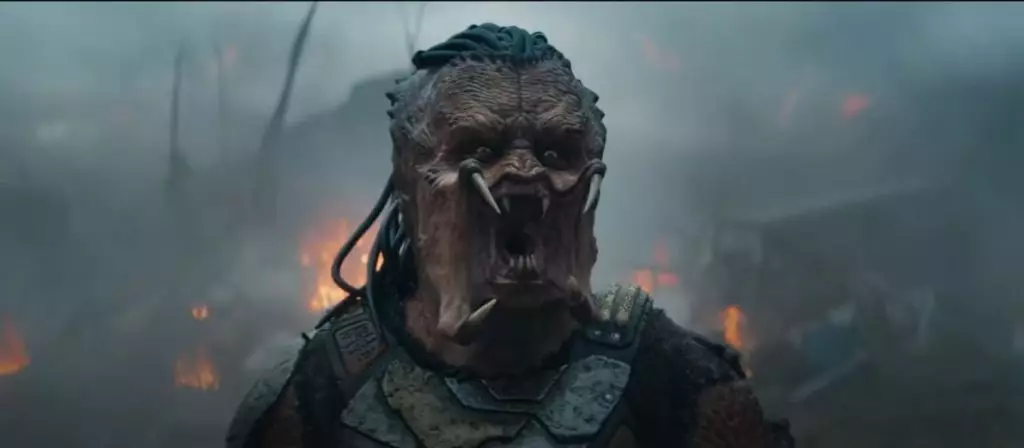In a landscape dominated by established giants and predictable franchises, the latest offerings from Disney—namely Predator: Badlands and Tron: Ares—signal a bold paradigm shift. For years, blockbuster franchises have leaned heavily on nostalgia and iconic characters to sustain audience interest, often sidelining innovative storytelling and diverse representation. However, these new projects challenge that status quo by placing fresh perspectives at the forefront. It’s a testament to the evolving tastes of modern viewers who crave nuanced narratives and complicated characters rather than mere spectacle. Yet, behind this promising shift lies a paradox: the industry’s lingering tendency to favor major brand names and safe bets over risk-taking ventures that truly reflect societal diversity.
Reclaiming Narrative Agency
Predator: Badlands marks a groundbreaking departure within its own franchise universe, featuring a Predator protagonist—an unprecedented move. This choice implicitly critiques the traditional hero-villain dynamic in action and sci-fi genres, which have historically marginalized or stereotype marginalized identities. The film’s portrayal of a young Predator cast out from his clan symbolizes a broader narrative trend that elevates underrepresented voices—whether they be characters of different backgrounds, gender, or even species—who are often relegated to secondary roles or villainous archetypes. The film’s decision to eschew human characters in its core story signifies a conscious effort to diversify storytelling strategies and highlight complex relationships beyond the usual human-centric perspective.
The film’s creative team has openly expressed the importance of emotional depth and heart—an approach that often gets sacrificed in big-budget productions. While critics might be skeptical about whether these themes resonate genuinely or are simply marketing signals, the emphasis on heart and hardship in a sci-fi context suggests a move toward a more empathetic and inclusive storytelling paradigm. Moreover, the incorporation of practical effects and authentic performances fosters a sense of sincerity, which is crucial in bridging the gap between entertainment and meaningful representation.
The Power of Subversion and Unexpected Heroes
Contrasting with the usual narratives which prioritize human dominance or imperial conquest, Predator: Badlands introduces viewers to a universe where even the most feared predators face rejection and exile, echoing societal themes of marginalization and resilience. By making a Predator the protagonist, the franchise challenges audiences to reconsider preconceived notions of heroism, violence, and authority. This repositioning encourages viewers to question the traditional narratives of strength and power—values often celebrated in Hollywood—and instead embrace stories that recognize vulnerability and empathy as sources of true strength.
Furthermore, the character dynamics, such as the unlikely friendship between the Predator outcast and a battered android, symbolize hope for cross-cultural and cross-species understanding. It’s a reminder that fostering empathy across divides—be they cultural, species, or social—is not only necessary but ultimately empowering. This is especially relevant in today’s political landscape, where polarization often hampers societal progress. Films like this serve as allegories for the importance of embracing diversity, questioning authority, and finding common ground in a fractured world.
Disrupting the Industry’s Comfort Zone
While the industry celebrates major IPs, the risk involved in bringing radical perspectives often discourages studios from backing truly innovative projects. Yet, films like Predator: Badlands demonstrate that audiences are hungry for more than familiar faces and clichéd heroes. They want stories that reflect their diverse realities and challenge the dominant narratives that have long marginalized voices outside the mainstream.
The fact that such a movie is slated for theatrical release is significant—it signals a possible shift in industry priorities, recognizing that fans progressively seek representations that mirror their complex identities. These stories are not merely about entertainment but serve as catalysts for societal reflection and change. The Hollywood model, increasingly aware of its own limitations, must follow this lead—supporting ventures that defy conventions and elevate underrepresented characters, ideas, and themes.
Ultimately, the current movement within genre films toward embracing diversity and subversion isn’t just a trendy adaptation; it’s a pivotal step toward a more equitable entertainment landscape. By daring to elevate overlooked perspectives, filmmakers open new avenues for storytelling that are as emotionally compelling as they are socially meaningful. If these initiatives gain traction, they could redefine the future of franchise cinema—not just as escapism, but as platforms for societal evolution and consciousness-raising.

